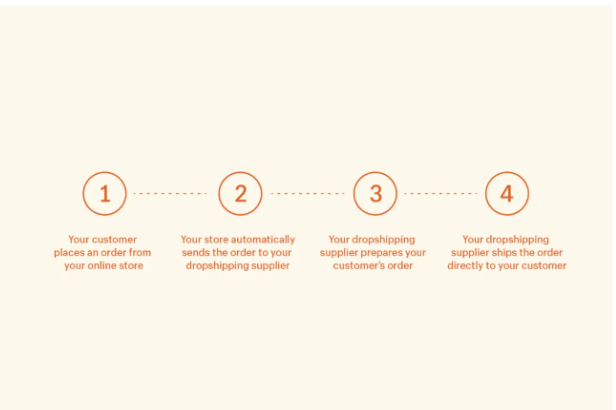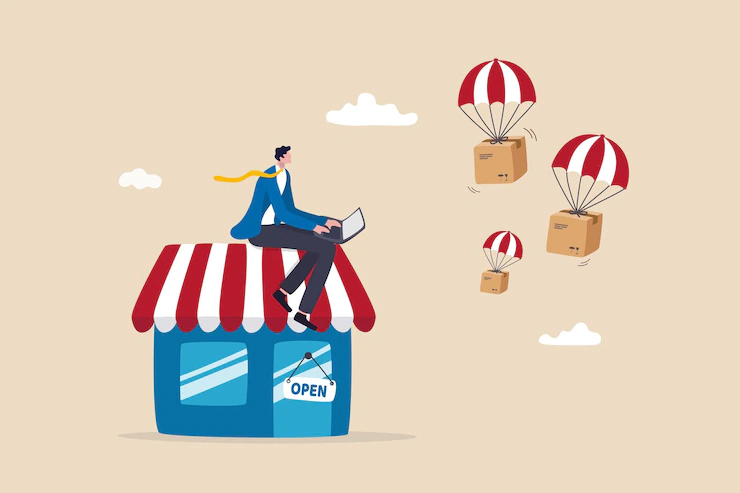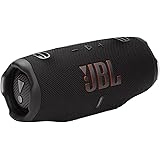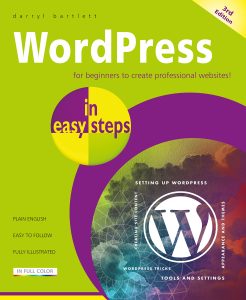JBL Charge 6 - Portable Waterproof & Drop-Proof Bluetooth Speaker, Bold JBL Pro Sound with AI Sound Boost, 28Hrs of Playtime, Built-in powerbank & Comes with a Sturdy/Removable Carrying Strap (Black)
$135.00 (as of January 6, 2026 11:49 GMT +00:00 - More infoProduct prices and availability are accurate as of the date/time indicated and are subject to change. Any price and availability information displayed on [relevant Amazon Site(s), as applicable] at the time of purchase will apply to the purchase of this product.)The eCommerce boom has entrepreneurs launching Shopify stores at record rates. But before you start selling, there’s a critical question: Do you need a business license to sell on Shopify?
The answer depends on your location, products, and revenue. While Shopify doesn’t require a business license to create a store, local, state, and federal laws often do for legal operation. Understanding dropshipping legal requirements and licensing needs can save you from hefty fines and legal troubles.
Whether you’re considering an LLC for dropshipping or wondering if you need a business license to dropship on Shopify, this guide covers everything about business licensing requirements in 2025.
Summary
Here’s what you’ll learn about business licensing for your Shopify store:
- License Basics: What business licenses are and why they provide legal protection for your eCommerce business
- Shopify Requirements: The $20,000/month threshold, and when you need a business license to sell on Shopify
- LLC vs Sole Proprietorship: Whether you need an LLC to sell on Shopify and the benefits of each structure
- Dropshipping Requirements: Specific licenses for dropshippers, including seller’s permits and resale certificates
- Regional Rules: License requirements in California, Texas, Canada, the UK, and the UAE
- Application Process: How to obtain necessary licenses and maintain compliance
What Is a Business License and Why Does It Matter?
A business license is government approval allowing you to legally operate a business in a specific jurisdiction. It proves you’ve met all regulatory requirements and protects public health and safety.
Operating without required licenses can result in serious consequences. You might face fines of hundreds to thousands of dollars. Government authorities could shut down your business temporarily or permanently. You’ll also miss critical legal protections and tax benefits that licensed enterprises enjoy.
Now that you understand what business licenses are, let’s explore Shopify’s specific requirements.

Do You Need a Business License to Sell on Shopify?
Shopify doesn’t require a business license before creating a store. However, you must comply with all applicable local, state, and federal laws. The responsibility falls entirely on you as the store owner.
When a Business License Is Required
You absolutely need a business license for Shopify in these situations:
- Revenue Threshold: If you earn over $20,000 per month, most jurisdictions require a business license.
- Regulated Inventory: Storing products at home that require health permits—like foods, supplements, or cosmetics—needs special licenses.
- Product-Specific Regulations: Selling alcohol, firearms, pharmaceuticals, or other controlled substances requires licenses regardless of revenue.
- Home-Based Operations: Running your Shopify business from home may require a home occupation permit for zoning compliance.
Your business structure doesn’t change fundamental licensing requirements. Both LLCs and sole proprietorships must meet the same legal obligations. However, an LLC makes you appear more legitimate to suppliers and provides liability protection.
Understanding these requirements is essential, but different license types serve various purposes.
Types of Business Licenses for Shopify Sellers

General Business License
This common license allows you to operate legally within a specific jurisdiction. Nearly all Shopify business owners need one, regardless of size. You obtain it from your city or county government as basic permission to conduct business.
Seller’s Permit or Resale License
If you’re selling physical goods, you’ll need a seller’s permit (also called a sales tax permit). This license allows you to collect sales tax from customers and remit it to the state. It also lets you purchase inventory from wholesalers without paying sales tax upfront. Each state has different requirements—some charge fees while others issue permits for free.
Home Occupation Permit
Running your Shopify business from home? Many jurisdictions require this permit to ensure your company doesn’t disrupt the residential environment. Check with your local Small Business Administration to determine if you need one.
Federal Business Licenses
Specific industries require federal licensing: agricultural products, alcoholic beverages, aviation items, firearms, pharmaceuticals, and FDA-regulated products. Federal licenses carry stricter requirements and higher costs but are necessary for legal operation in regulated industries.
With these license types in mind, let’s address dropshipping requirements.
Do You Need a Business License to Dropship on Shopify?

Dropshipping eliminates inventory needs, but licensing requirements remain similar. Whether you need a business license to dropship follows the same rules: required if you earn over $20,000 monthly, sell regulated products, or operate where licenses are mandatory. If you’re new to dropshipping, learn more about what dropshipping is and how it works before diving into licensing.
Why Requirements Are Similar
Even without physically handling products, you’re still the seller of record. You’re responsible for legal compliance in all jurisdictions where you do business.
Good news: since suppliers store and ship products, they typically hold product-related permits. You don’t need licenses for warehousing. To learn more about operations, check our guide on how to sell on Shopify without inventory.
Key Licenses for Dropshippers
If you’re asking “do I need an LLC to dropship,” the answer is no—but it’s highly recommended. An LLC for dropshipping provides liability protection and tax benefits.
Essential licenses include:
- Business License: Required in most locations at certain thresholds
- Seller’s Permit: Mandatory for collecting sales tax where you have nexus
- EIN: Essential for taxes and required by most suppliers
- Resale Certificate: Lets you purchase without paying sales tax upfront
For comprehensive setup guidance, read how to sell other people’s products on Shopify.
Now let’s explore whether you need an LLC for Shopify.
LLC for Dropshipping: Do You Need One?
You don’t need an LLC to sell on Shopify, but forming one offers significant advantages.
Benefits of an LLC
- Limited Liability Protection: Separates personal assets from business liabilities. If sued, your personal savings and home remain protected.
- Tax Advantages: LLCs offer flexible taxation with pass-through treatment or S-Corp election for additional savings.
- Professional Credibility: Suppliers take you seriously. Many won’t work with sole proprietors.
- Banking Benefits: Easier to open business bank accounts and separate finances.
LLC formation costs vary by state—Wyoming charges $100 with no state income tax, while New York has higher fees. Most states range from $50 to $500.
Understanding tax requirements is equally crucial.
Sales Tax Nexus and Seller’s Permits
Sales tax nexus refers to your connection with a state requiring sales tax collection. Traditionally, nexus meant physical presence. Now, many states enforce economic nexus based on sales volume—often $100,000 in sales or 200 transactions annually.
Do I Need a Business License for Shopify Tax Compliance?
A business license and seller’s permit are different but work together. Your business license permits operation; your seller’s permit authorizes sales tax collection. Once registered with your state tax authority, you’ll receive a sales tax ID for collecting and filing returns.
Shopify Tax helps determine where you have nexus and what taxes to collect. It’s free for stores under $100,000 in annual sales.
EIN Requirements
An EIN (Employer Identification Number) is your business’s Social Security number. You need one if you operate as an LLC, partnership, or corporation. Even sole proprietors benefit from getting an EIN.
Benefits include easier bank account opening, supplier relationships, payment processing, and tax separation. Apply free through the IRS website in about 15 minutes.
License requirements vary by location. Let’s examine key markets.
Business Licensing by State and Country
California
California requires a DBA (Doing Business As) name and seller’s permit from the Department of Tax and Fee Administration. You must publish your DBA in a local newspaper for four consecutive weeks. Los Angeles doesn’t require a standard business license unless selling restricted products.
Texas
Texas requires a sales tax permit from the Texas Comptroller’s office and may require a general business license depending on your city. If operating as an LLC, file formation documents with the Texas Secretary of State.
Canada
While not always mandatory, obtaining a business license in Canada is highly recommended. You must register with the Canada Revenue Agency, and need GST/HST registration if annual revenue exceeds $30,000 CAD. Contact your local Small Business Centre for specific provincial requirements.
United Kingdom

Register with HMRC (Her Majesty’s Revenue and Customs) within three months of starting your business—this is mandatory. For general goods, no specific license is needed, but follow UK government regulations on online selling. VAT registration is required if turnover exceeds £85,000 annually. Selling alcohol requires both personal and premises licenses.
United Arab Emirates
The UAE requires a trade license from the Department of Economic Development. Specific eCommerce licenses are available for online-only businesses with lower fees. Many entrepreneurs use UAE free zones offering 100% foreign ownership and tax exemptions. For complete regional guidance, check our Shopify dropshipping in UAE guide.
Understanding requirements is one thing—knowing how to apply is another.
How to Apply for a Business License
Step 1: Choose Your Business Structure
Decide between sole proprietorship (simplest), LLC (best for most), or corporation (for larger operations). LLCs offer the best balance of protection and simplicity for Shopify sellers.
Step 2: Get Your EIN
Apply through the IRS website—it’s free and takes 15 minutes. You’ll receive your EIN immediately.
Step 3: Research Requirements
Contact your city/county clerk, state business licensing office, and check the Small Business Administration website. Consider using a business license research service for comprehensive guidance.
Step 4: Gather Documentation
Prepare your business name, EIN or SSN, business address, contact information, identification, and any industry-specific certifications.
Step 5: Submit and Pay
Complete applications accurately. Costs vary: local licenses ($50-$200), state licenses (free to $500+), federal licenses (hundreds to thousands). Submit according to each agency’s requirements.
Step 6: Maintain Compliance
Renew annually, update information promptly, keep records organized, and file taxes on time. As your business grows, implement Shopify automation to maintain compliance efficiently.
Understanding when licenses aren’t required helps you plan appropriately.
When Licenses May Not Be Required
Some jurisdictions don’t require business licenses until you reach revenue thresholds. The $20,000 per month mark commonly triggers requirements.
If you’re selling occasionally as a hobby with no profit expectation and minimal sales (under $600 annually), you might qualify as a hobbyist rather than a business. However, if you’re regularly selling on Shopify with profit goals, you’re operating a business and should be licensed.
Even if local laws don’t require licenses, payment processors often do. Many payment gateways require business verification, including valid licenses, before approving accounts.
Operating without proper licensing carries significant risks.
Risks of Operating Without Proper Licensing
Legal and Financial Penalties
Consequences include substantial fines (hundreds to thousands of dollars), business closure orders, back taxes with interest, and potential legal action.
Personal Liability
Operating as a sole proprietor without proper structure exposes personal assets. An LLC for dropshipping protects against these risks by separating business and personal liabilities.
Professional Issues
Legitimate suppliers won’t work with unlicensed businesses. You’ll miss better pricing, exclusive products, and reliable partnerships. Customer trust also suffers when proper licensing is absent.
Tax Complications
You’ll miss deductions available to licensed businesses, face complicated filing without business/personal separation, risk audits, and lose retirement account opportunities like SEP IRAs.
Proper licensing supports long-term success and growth.
How Licensing Supports Business Growth
Proper licensing demonstrates professionalism and legitimacy. Suppliers, partners, and customers show more willingness to work with fully licensed businesses through better pricing, long-term partnerships, and larger purchases.
Want to expand with a business loan? Banks require registered business entities, all necessary licenses, separate bank accounts, and proper tax compliance history. Licensed businesses also access numerous tax deductions: home office expenses, equipment costs, marketing expenses, and retirement contributions.
As you scale, proper licensing makes expanding into new markets straightforward. You’ll already have established business structure and documentation for adding licenses in new states or countries.
Key Takeaways
- Shopify doesn’t require business licenses to create stores, but local, state, and federal laws often do for legal operation.
- Business licenses become necessary when earning over $20,000 monthly, selling regulated products, or operating in certain jurisdictions.
- An LLC for dropshipping provides liability protection and tax benefits, though it’s not mandatory to start.
- Dropshipping legal requirements mirror traditional eCommerce—proper licensing is essential even without holding inventory.
- License requirements vary significantly by location—research federal, state, and local requirements for your situation.
Conclusion: Start Your Shopify Business the Right Way
Understanding whether you need a business license to sell on Shopify is crucial for launching a successful, legally compliant eCommerce business. While licensing might seem complex, breaking it into manageable steps makes the process straightforward.
Proper licensing isn’t just about avoiding penalties—it’s about building a legitimate, scalable business with better supplier relationships, financing opportunities, and legal protections. Whether you’re considering LLC dropshipping or starting as a sole proprietor, fulfilling licensing requirements sets you up for long-term success.
Ready to launch your Shopify store with proper licensing? Folio3’s team can help you build a professional eCommerce platform designed for growth. From Shopify store development to order fulfillment optimization, we provide the technical foundation your licensed business needs to thrive.
Don’t let licensing confusion delay your entrepreneurial dreams. Research your requirements, consult professionals when needed, and start building your Shopify business the right way—legally, professionally, and ready for growth.
Frequently Asked Questions
Do You Need a Business License to Sell on Shopify?
You don’t need one to create a store, but may need one to operate legally depending on location, revenue, and products. Most jurisdictions require licenses once you earn over $20,000 per month.
Do I Need an LLC to Sell on Shopify?
No, but an LLC for dropshipping provides liability protection, tax advantages, and professional credibility with suppliers.
Do You Need a Business License for Dropshipping?
Yes, most dropshippers need licenses once reaching revenue thresholds or operating where licenses are required. Dropshipping legal requirements mirror traditional eCommerce.
How Much Does a Business License Cost?
Costs vary: local licenses ($50-$200 annually), state licenses (free to $500+), federal licenses (several thousand). Seller’s permits are often free or under $100.
Can I Start a Shopify Store Without Licenses?
You can create a store, but operating without required licenses risks fines, business closure, and liability. Obtain necessary licenses before actively selling.
What Happens If I Sell Without a License?
Potential consequences include government fines, business closure orders, personal liability, frozen payment accounts, and back taxes with penalties.
Source: https://ecommerce.folio3.com/blog/do-you-need-a-business-license-to-dropship-on-shopify/

